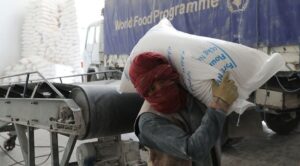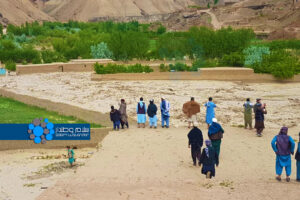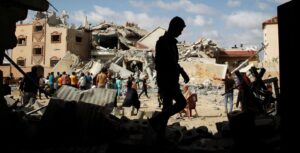KABUL (SW) – Findings by Salam Watandar indicate women and girls are getting their job applications rejected for no reasons in various sectors.
According to the findings, the sectors of health, education, services, agriculture, industry and trade and media are the only sectors where women are allowed to work, but most women do not have permission in these sectors either.
The caretaker government always considers the handicrafts and trade sectors as the only field for women that they can work in these sectors, but in this conversation with Salam Watandar, four women said that women in the provinces cannot get trade or industry licenses. According to them, business licenses are given to women traders only in the capital, Kabul.
Aziza Rasouli, a resident of Bamyan, says: “I wanted to get a license again, there is no chamber of commerce license available to renew and I have to get a license from the judiciary. It is also very expensive.”
Similarly, Shiba, a resident of Parwan, asks the caretaker government to remove the existing restrictions in the field of issuing permits for women and provide them with facilities in this field. She says: “We request the government of the Islamic Emirate to make the process of obtaining a permit easier for women and remove the restrictions. When the government gives permission and the environment is not favorable for us, we cannot do our work in a more correct and comfortable way.”
On the other hand, 10 female businessmen interviewed in this report say that they have tried to get work permits in the fields of education, services and agriculture, but they have not been given permission for various reasons.
Parisa Sharifi, a resident of Kunduz who wants permission to establish an educational center in this province, told Salam Watandar: “In order to be able to gather a number of women and teach them, we decided to establish an educational center and with one of our colleagues we went to the department of education to get a license, but unfortunately they did not even allow us to enter the department.”
Meanwhile, three other female interviewees who want to obtain licenses in public service fields such as creating civic institutions, visa and passport service companies, technology and agricultural companies, say they have applied for licenses, but it has been rejected by the authorities. Soraya Javed, one of the women, says: “Unfortunately, the Ministry of Justice rejected our request and said that the licenses that are in the names of women and civil organizations that are registered, their licenses will not be renewed and are suspended.”
According to the findings of Salam Watandar, an official of one of the media institutions, who did not want to be named in this report, said that after the collapse of the Republic, only two women were given permission to work in the media.
In this interview, three female journalists who are seeking to obtain a license to operate and establish media institutions, also say that they have not succeeded in obtaining a license from the Ministry of Information and Culture.
Officials of the media support organization (NAI) say that they have received complaints about not issuing media activity licenses to women.
“Unfortunately, later we received say that some women wanted to create media organizations, but the Ministry of Information and Culture suspended their broadcasting license and did not allow them to operate,” says Zarif Karimi, head of Nai.
On the other hand, a number of women’s rights activists say that with the continuation of restrictions against women, their problems will increase day by day.
Latifah Anwari, a women’s rights activist, says: “Unfortunately, in Afghanistan, women are not given work permits in any way, in any way and in any sector. In the current government, women who were active, worked in hairdressing salons, business women, all of them have stayed at home. Women are in a very bad situation from every point of view.”
Zainab Rezaei, another women’s rights activist, also says that in the last two years, women are not allowed to do anything. “Since they entered Afghanistan, women have not been allowed to work, and they are still not given a license to work, or for an institute, or even a driver’s license. This is one of the problems that are increasing day by day inside Afghanistan and it is a cause for concern.”
In addition, the officials of the Ministry of Industry and Trade and the state-owned company “Afghantour” told Salam Watandar that women can obtain work permits in any field without any problems throughout the country.
Abdulsalam Javad Akhundzadeh, the spokesman of the Ministry of Industry and Trade, says: “Since the two years of transformation and the establishment of the Islamic Emirate, we have distributed more than 1,200 licenses to women entrepreneurs, and fortunately, this process continues. Also, there are more than 8,000 women who have permission to work in Afghanistan.”
Abdul Ghafoor Amanat, the operational vice president of Afghantur state company, also assures that women can get a work permit without any conditions. He says: “Women can freely obtain the license of tourism companies without any conditions. There is no obstacle for women to obtain the license of tourist companies.”
We tried to get the views of the officials of the Ministry of Education, Information and Culture and the Ministry of Agriculture, Irrigation and Livestock in this field, but we did not succeed.
Despite all this, Zabihullah Mujahid, the spokesman of the Islamic Emirate, told Salam Watandar that the efforts to remove the restrictions and making it easier for women is going on. He added: “In the limited sectors that have not been able to be used so far, efforts are being made to create a favorable working environment and a background for our sisters to come and go in the offices, so as to be sure and safe.”
ENDS






